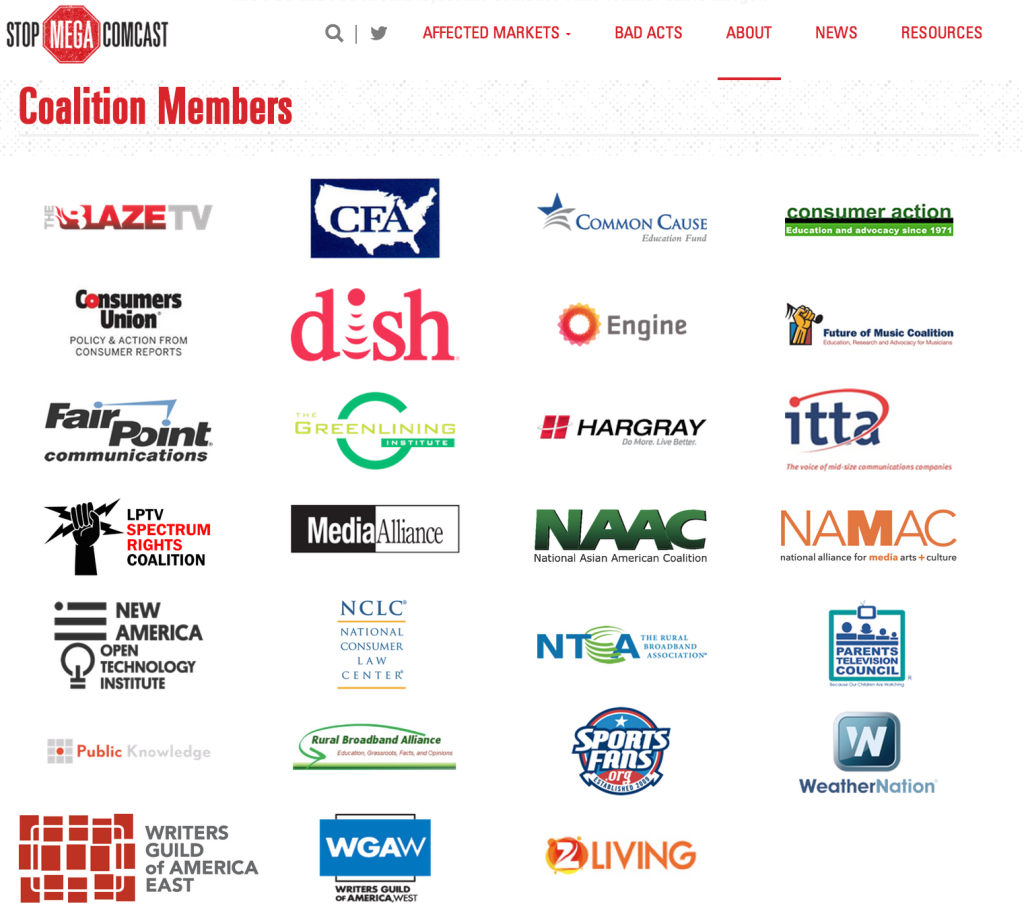More Groups Pile Onto “Stop Mega Comcast” Coalition
The Stop Mega Comcast Coalition now counts 27 different groups among its membership, including our advocacy-minded colleagues at Consumers Union, who joined the coalition in recent weeks.
CU Policy Counsel Delara Derakhshani says that consumers, especially those who have been customers of either of these cable TV giants, have good reason to be skeptical that the two lowest-rated cable and broadband providers in the country would somehow be better together.
“Both Comcast and Time Warner Cable are notorious for poor customer service and arbitrary price hikes – issues which are bound to persist, if not increase, under Mega Comcast’s regime,” explains Derakhshani. “By joining this coalition, we hope to sound the alarm on how this merger would lead to higher prices, fewer choices and worse service for consumers.”
Others hopping on the Stop Mega Comcast Voltron include Common Cause, which believes that a Comcast/TWC merger would lead to higher prices and fewer for consumers, along with presenting a tougher barrier for entry for competition and for independent media not supported by massive corporate coffers.
“With control of over 50 percent of high-speed broadband connections, a post-merger Comcast would have the ability and the incentive to raise prices, limit access to content, and fundamentally alter how consumers use the Internet,” reads a statement from the Open Technology Institute at New America Foundation, another recent coalition member. “We urge regulators to fulfill their commitments to fair competition and consumer choice by rejecting this merger.”
Even the Writer’s Guild of America, whose members depend on Comcast and its NBC Universal properties for their livelihoods, is willing to speak out against the merger.
“Writers are the lifeblood of the television shows, movies, radio programming and digital media consumers enjoy every day,” says Michael Winship, President of the Writer’s Guild of America, East. “The consolidation of Comcast and Time Warner Cable would render an entity so vast and powerful that these creators of content would face significantly fewer opportunities to pitch, develop and distribute compelling programming to viewers. This deal is anti-creativity, anti-competition, anti-consumer.”
The FCC review clock of the Comcast/TWC merger was briefly paused right before Christmas after it was revealed that TWC had failed to turn over all of the documents requested by the Commission. The countdown resumed this morning, and insiders tell Consumerist there will be several closed-door meeting in weeks to come between regulators and various parties involved in, or with an interest in, the merger.
Want more consumer news? Visit our parent organization, Consumer Reports, for the latest on scams, recalls, and other consumer issues.


